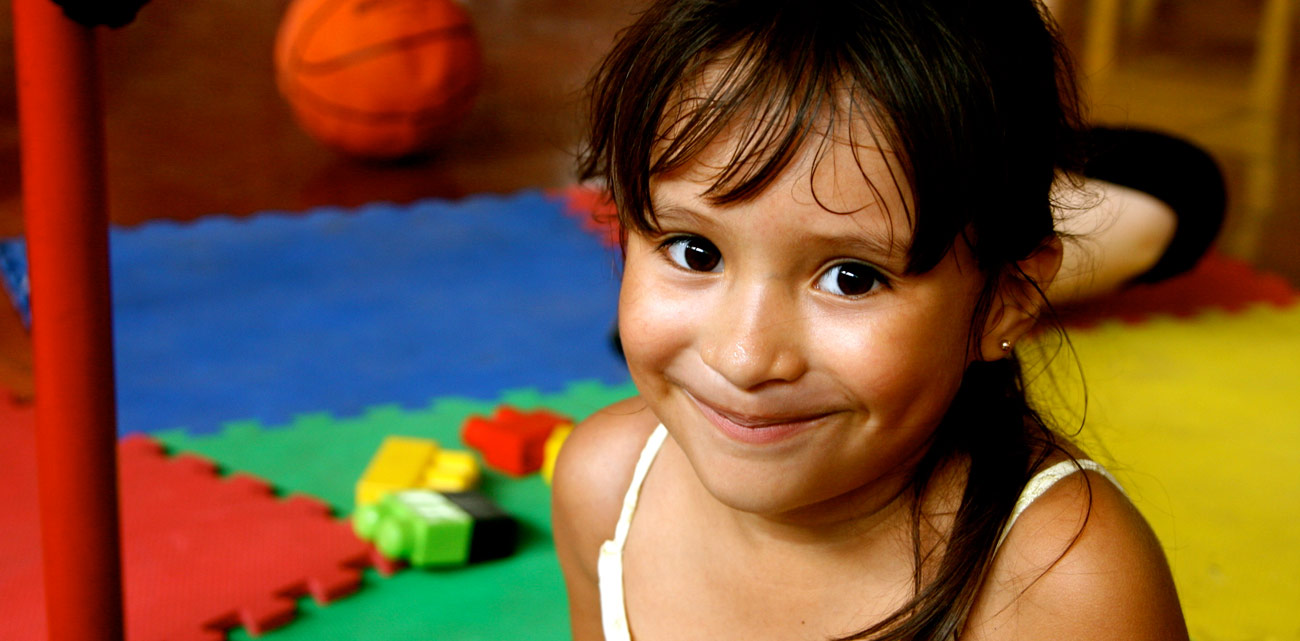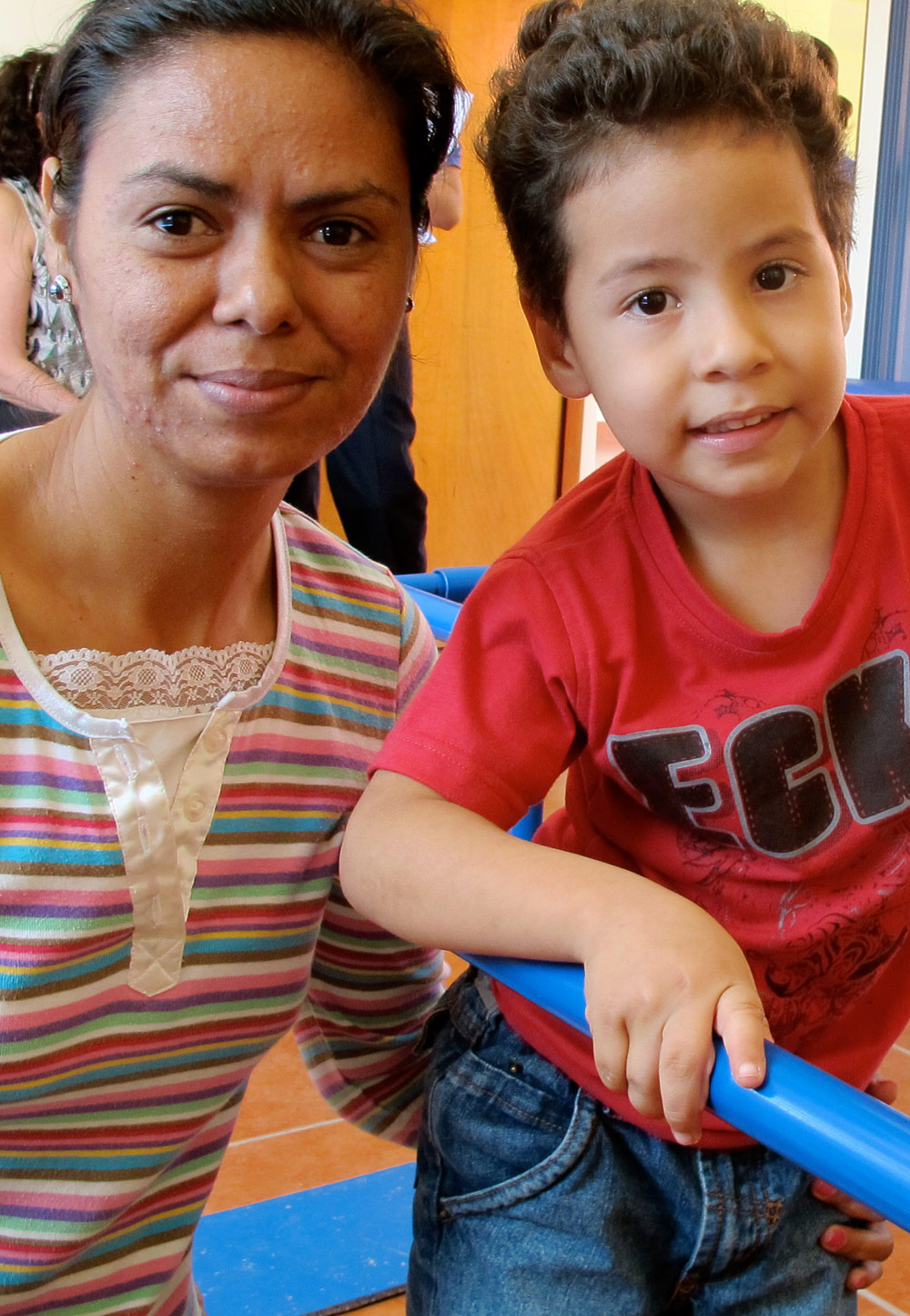Healthy Futures for Nicaragua’s Children with Disabilities


GHP partners with Nicaragua’s Los Pipitos, a community-based organization that trains parents of children with disabilities to “turn every home into a rehab center.”
Here Kenny Perez, 4, who has brain palsy, demonstrates his developing ability to walk; he practices at home, where his mother had a local Ocatal carpenter replicate center equipment. “Before he came to Los Pipitos, he never saw other children and had no social skills,” she says. “Now he walks, sits and plays, making enormous progress day by day.”
In Nicaragua, GHP partners with Los Pipitos, a community-based, parent-run national network of facilities and programs to build better lives for children with disabilities. Los Pipitos is Central America’s largest non-governmental organization providing services to children with disabilities and their families. Currently, Los Pipitos serves some 15,000 families in 80 urban and rural centers, focusing on enabling parents to understand their children’s needs and supplement the organization’s work with care and training at home. This goal is reflected in the slogan, ”Turn every home into a rehab center.”
Since 2007, GHP has sent teams of volunteer occupational and speech therapists, as well as graduate students from Texas Children’s Hospital, Thomas Jefferson University, Baylor University Medical School and Columbia University to provide advanced training to Los Pipitos staff and parent caregivers, and to enhance the organization’s capacity on a national level. Our project is directed by Dr. Debra Tupe of Columbia’s Programs in Occupational Therapy, who created this initiative to advance the clinical skills of Los Pipitos therapists, physiologists and coordinators through on-site continuing education and hands-on training.
In Nicaragua, Latin America’s second-poorest country (after Haiti), approximately 12.5 percent of children under the age of 14 have some form of disability. In the developing world, people with disabilities are among the poorest of the poor, often isolated, stigmatized, and deprived of education, healthcare, rehabilitation therapies, and job training and opportunities. They are particularly vulnerable to violations of their legal and human rights, with women and girls at increased risk of domestic violence and sexual abuse. Within Nicaragua, health literacy surrounding disability is low and there is a shortage of children’s services that address functional and social needs, and provide early detection of infant disabilities. Los Pipitos thus fills a critical need for these children and their families in cheerful, spotless, accessible centers where staff collaborates with parents to design and enhance services.
GHP is now working with Nicaragua’s National Autonomous University Medical School to advance the skills of Nicaraguan doctors and medical students, who currently have scant access to training in diagnosing pediatric disabilities and directing rehabilitation. We will provide volunteer U.S. doctors and therapists to extend our “train the trainers” program with Los Pipitos to this medical facility. GHP is also planning to extend our short-term training visits into longer resident partnerships that will enable us to provide a more sustainable hands-on training program.

